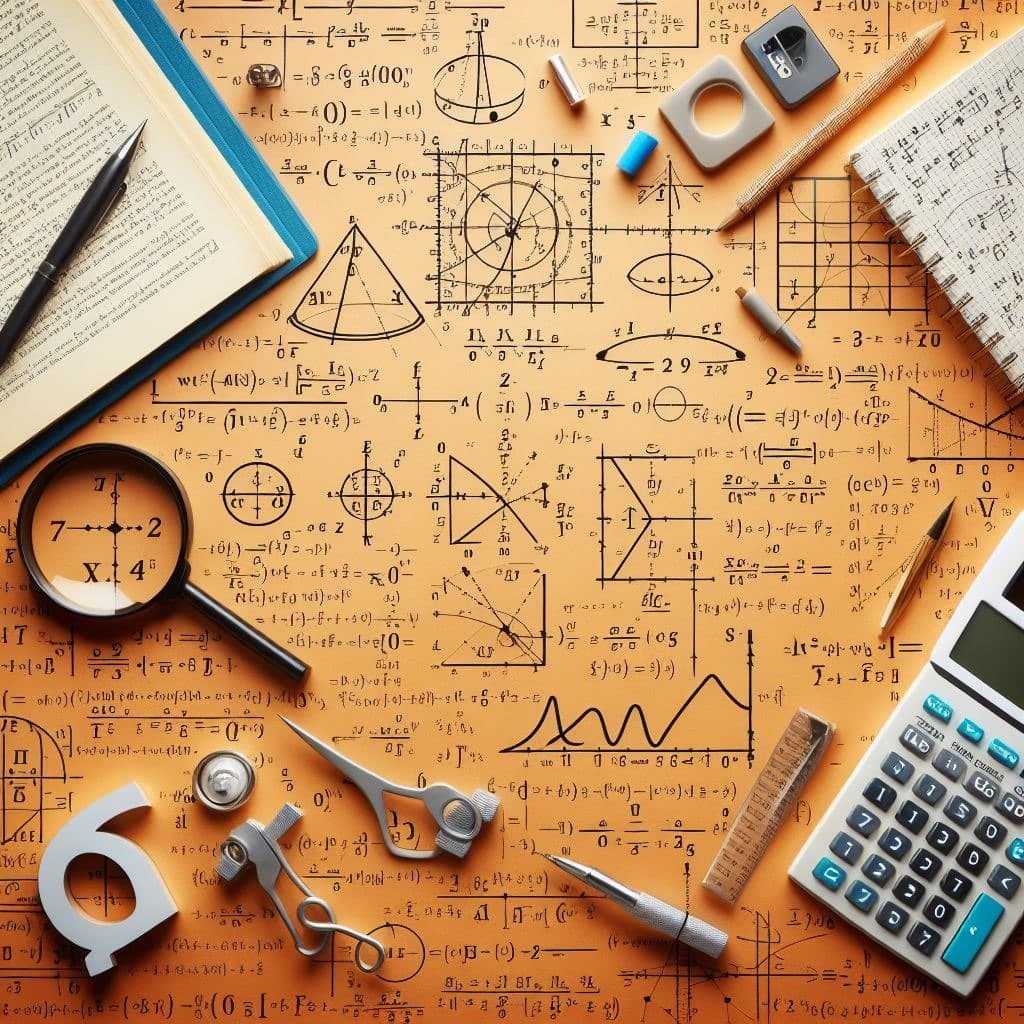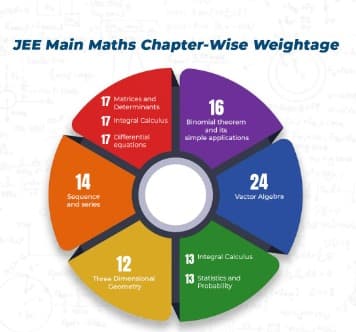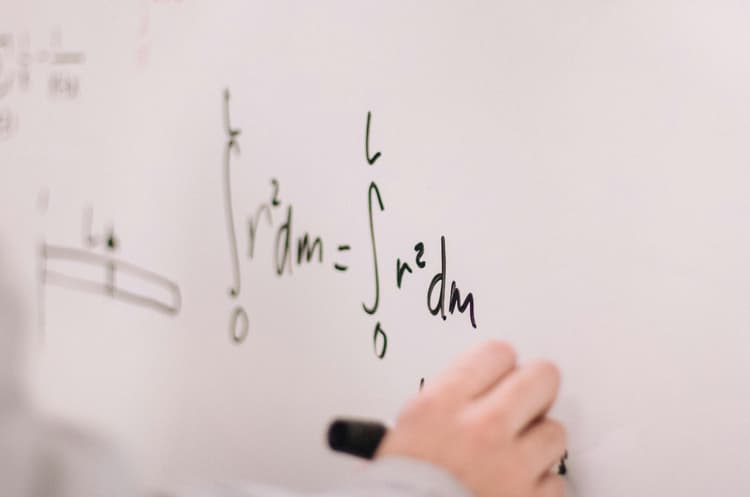Mathematics study hacks for IIT JEE

Complex engineering calculations are based on mathematics. The majority of the mathematics-related questions on JEE exams often center around formulas and their uses. To do well in this section, you will need to practice a lot.
As you solve more tasks, your accuracy and speed will improve. It would be hard to get a good score merely by reading and remembering mathematical formulas. Make an effort to grasp every important idea by visualizing it and using it to solve actual situations
There are many chapters in the mathematics syllabus for JEE, and unlike physics or chemistry, nothing in mathematics is categorized as being highly significant or less important because the majority of the topics are related. As a result, you are unable to skip any area to concentrate more on another.

In how many sections is the JEE Maths syllabus divided?
The mathematics syllabus can be broadly divided into five topics:-
Calculus
This unit's breadth and degree of difficulty make it extremely important for both JEE Main and JEE Advanced. One may anticipate multiple questions from this unit in any engineering entrance exam. If you do well in this unit, you won't have to worry too much about JEE Mathematics; therefore, you should practice and get ready for this unit.
Calculus includes several important subtopics, such as limits, continuity, and differentiability, the relationship between continuity and differentiability, differentiation, integration, definite integrals, integration by parts, properties of definite integrals, rate measurement, normalcy and tangents, maxima and minima, differential equations, and area under curves.
Co-ordinate geometry
Understanding various geometric shapes, such as circles, parabolas, hyperbolas, and more, is the main goal of this lesson. This unit's questions are mostly focused on applying formulas, which makes it highly engaging and, for the majority of students, a high-scoring lesson. This section offers the highest possible score. Pay closer attention to hyperbola, straight lines, circles, ellipses, and parabolas. Circles and Straight Lines are the most significant of all of these.
3D Geometry and Vectors
This is a conceptually heavy unit. Comparable to Coordinate Geometry, it has a comparable weight in JEE. A few geometrical concepts are included as well as complex numbers. If you fully grasp certain intricate ideas related to vectors and 3D geometry, you should be able to do well on this subject. Prioritize mastering the fundamentals and using visualization to better grasp this unit.
Algebra
This course is engaging, and many students find that the key concepts of logarithms, matrices, determinants, and quadratic equations are particularly simple to grasp and engaging. There were a few Complex Number questions mixed in with the vectors in JEE Main and Advanced on multiple occasions.
One of the passage-type questions from matrices and determinants in JEE Advanced is likely to be the simplest to solve. A few conceptual questions on permutations and combinations should also be expected. Questions based on formulas are typically derived from the Binomial Theorem and Sequence and Series. As a result, you could easily get decent grades for this section if you avoid making dumb blunders.
Trigonometry
It is among the most crucial JEE Main concepts. Among the most important things you should concentrate on are trigonometric functions, ratios, and inverse trigonometry. A JEE candidate will undoubtedly benefit from mastering some fundamental trigonometric principles because this section has a large number of questions. You must commit all of the trigonometric formulas, together with their graphs and substitutions, to memory if you want to perform well in this course.
What are the easiest topics of Mathematics in JEE?
- Application of Derivatives
- Definite Integration
- Differential Equation
- Vectors and 3D
- Matrices and Determinants
- Sequence and Series
- Ellipse and Hyperbola
- Mathematical Reasoning
A complete breakdown of the most important topics of mathematics in JEE
Important Topics For Mathematics According To JEE Main 2024 Chapter Wise Weightage

What are the benefits of solving JEE Mathematics Previous Year Questions?
Understanding the format of the exam, the kinds of questions that are asked, and the relative importance of the various areas requires analyzing the previous year's JEE Main question papers. You can pinpoint the chapters that receive high marks by reviewing the previous year's papers and tailoring your preparation appropriately.
Understanding the exam pattern and question types
You can have a comprehensive grasp of the test format, including the quantity, distribution of questions by section, and nature of questions, by examining previous year's papers. This information aids in the efficient use of your study time and the creation of a customized preparation plan.
Identifying high-weightage chapters
Previous year papers provide valuable insights into the weightage given to different chapters in the Mathematics section. By analyzing the frequency of questions from specific chapters, you can identify the high-scoring areas and prioritize your preparation accordingly.
Decoding trends and difficulty levels
You can determine the general degree of exam difficulty and recurrent question patterns by looking through the previous year's exam papers. This information aids in the development of the necessary problem-solving abilities and helps you predict the kinds of questions to expect.
Adapting to evolving exam patterns
Over the years, the JEE Main exam pattern has undergone subtle changes. Analyzing previous year's papers ensures you are up-to-date with the latest trends and any modifications in the exam format or question types.
How to make notes for JEE mathematics success?
Efficient note-taking is essential for JEE Main Mathematics preparation. For effective review, test preparation, and a deeper comprehension of mathematical subjects, well-organized notes are crucial. Here are some pointers for taking notes to succeed in JEE Main Math:-
Capture Key concepts and definitions
The cornerstone of your notes is the definitions and important concepts you record. These fundamental concepts in mathematics ought to be succinct, understandable, and unambiguous. Use brief words or bullet points to emphasize the main ideas of each issue rather than giving long explanations.
Harness the power of diagrams and illustrations
The language of mathematics is visual. It is essential to comprehend difficult ideas. To improve comprehension and give abstract concepts a more concrete sense, include drawings, graphs, and diagrams in your notes.
Summarize important formulas and theorem
In mathematics, formulas, and theorems are the cornerstones of problem-solving. Set up a specific area in your notes to provide a summary of key equations and theorems.
Use your own words
Refrain from taking notes on text from lectures or textbooks. To improve comprehension and recall, rephrase ideas and explanations in your terms.
Best Books for Mathematics in IIT JEE
We have curated the best books that you could need for cracking the Mathematics section in IIT-JEE:
Higher Algebra, Hall and Knight
Algebra, Arihant
Higher Algebra, Barnard & Child
A Textbook of Matrices, Shanti Narayan
Trigonometry, S L Loney
Calculus & Analytic Geometry, Thomas & Finney
Integral Calculus, Arihant Prakashan
Differential Calculus, A Das Gupta
Problems in Calculus of One Variable, I. A. Maron
Calculus, J. Edward
Textbook of Coordinate Geometry, A. Majeed
Vector Algebra, Shanti Narayan
Co-ordinate geometry, Dr.Gorakh Prasad

Conclusion
Examining past JEE Main question papers is more than simply a practice activity; it's a tactical tool that gives you the confidence you need to ace the test. You may maximize your preparation and raise your chances of getting a top grade in JEE Mains by comprehending the exam format, recognizing high-weightage chapters, figuring out question trends, and adjusting to changing exam patterns.
Recall that the secret is to approach the analysis of previous year's papers with great care and procedure, and then to apply the insightful knowledge you extract into your JEE preparation plan.

Frequently Asked Questions
● What are the most important chapters of JEE Mains in 2024?
● Is JEE 2024 going to be tough?
● What is the syllabus for IIT JEE Mathematics?
● Is the JEE 2024 syllabus reduced?